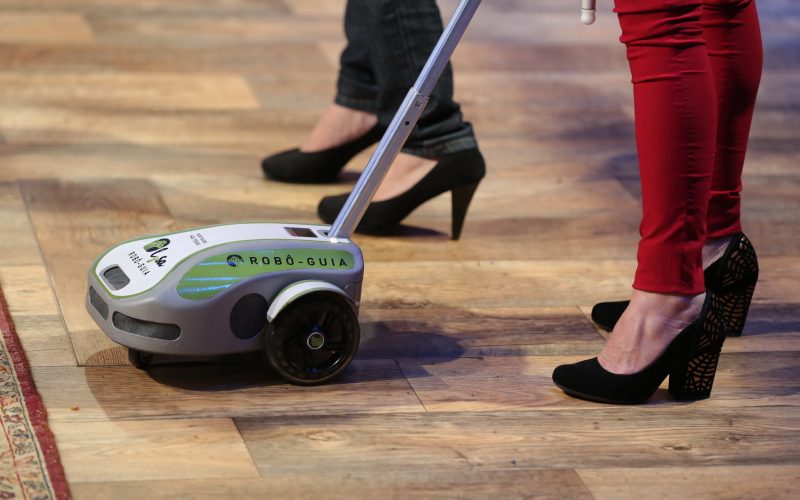MobiLysa: independence, trust, and mobility for the blind people
It doesn´t matter whether you are from the time of “Jetsons”, “Back to the future” or “Transformers”. For sure you already wondered how life in the future would be, with robots being part of the society. The future is now, and the positive impacts technology can bring to mobility for those who need aid in locomotion can already be summarized in a single name: MobiLysa.
Selected in the RNP R&D 2019 call, the main goal of the project is to improve the independence and the confidence of blind people, expanding the amount of possibilities to use the Lysa robot, which already exists, developed by the startup from Espírito Santo Vixsystem. Alone, it is capable of helping the user in the hard task to avoid obstacles in front, around or even above. It can also warn, in case there is a hole or any high slope, such as steps. However, it cannot guide a person to the desired place. For this purpose, the user still depends on the help of a third-party or a navigator, such as a cellphone.
Based on this limitation, MobiLysa was created, a localization and navigation service for the Lysa robot in internal environments. Thus, a user, who is in a place where the system is available, can ask the robot to take him to a determined spot. This request will be made by voice interface or another kind of application, such as a tactile keyboard. After that, Lysa will guide the person to the desired place, warning and avoiding obstacles, as necessary.
The project is being developed to work in closed spaces like malls, museums, schools, etc. That is because in these places, it is not possible to use GPS precisely. These environments will be turned into smart spaces with an infrastructure based in computer vision. The idea is to use the structure of surveillance cameras, normally already installed in these places (or complement with new cameras) and use the images to locate and plan a route for the robot in real time to guide the user to the final destination.
One of MobiLysa´s differentials is that a guide dog will not be necessary to use this system, which is unique for each user. The places, where this system is available, will be able to offer this comfort to any blind person. In case the users already have their own Lysa, they will just have to connect to the smart space at the location (which can be done even automatically) or the place can offer a Lysa for this client to use while he/she is there.
“We believe that use of Lysa can be more spread out than guide dogs, which cost around R$ 50,000.00 and whose service life is from four to five years. We still do not have the exact cost of the Lysa robot, but it will be around four to five times cheaper than this value and its service life will also be longer. Furthermore, it will be able to guide the user to the place he wants literally. The only thing that Lysa will never be able to do is replace the affection a guide dog can develop to its owner”, the project coordinator and professor of the Federal University of Espírito Santo (Ufes), Raquel Vassalo, explains.
Learn more about Lysa robot
Watch the test video
